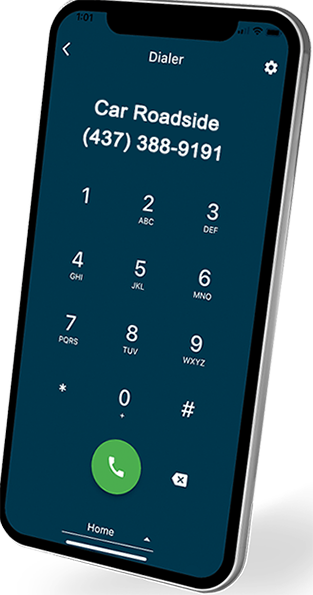
Oakville
Automobile Boost
JumpStart Service
A dead car battery shouldn't spoil your plans! Call (437) 388-9191
Oakville Automobile Boost
and JumpStart Service
A dead car battery shouldn't spoil your plans! Call (437) 388-9191
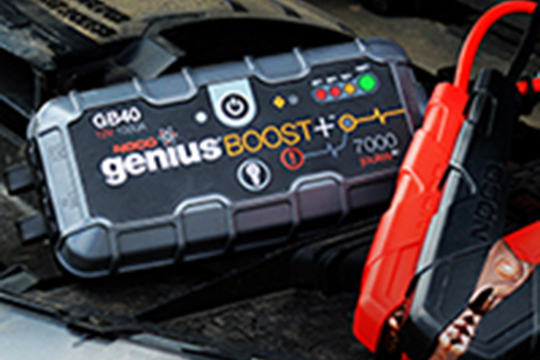
Advanced Booster Packs
Oakville Automobile Boost is at the forefront of automotive assistance, utilizing state-of-the-art booster packs that leverage the latest advancements in lithium-ion battery technology. This innovative approach allows us to provide an exceptionally powerful surge of energy, capable of recharging your depleted vehicle battery in just a matter of seconds.
Our commitment to safety is paramount; we understand the importance of protecting both our customers and their vehicles. That’s why our booster packs are equipped with a comprehensive array of safety features. These include mechanisms designed to prevent sparks during the connection process, ensuring a smooth and secure operation. Additionally, our technology incorporates safeguards against incorrect cable connections, which can lead to potential hazards.
With Oakville Automobile Boost, you can trust that you are receiving not only a rapid and efficient battery boost but also a service that prioritizes your safety and peace of mind. Our advanced equipment and dedication to excellence set us apart in the automotive assistance industry, making us the go-to choice for drivers in need of reliable battery support. Whether you’re at home, at work, or on the road, our cutting-edge solutions are designed to get you back on your way quickly and safely.
-30% Discount
Jump Start
Car Boost Service
437-388-9191

Underground
Automobile Boost
Underground parking facilities can pose unique challenges when it comes to providing Automobile Boost and JumpStart assistance. The confined spaces, limited access, and often dim lighting can make it difficult for standard roadside assistance services to operate effectively. This is where our specialized knowledge and expertise become invaluable. At Oakville Automobile Boost, we understand the intricacies of working in these environments, and we are equipped with all the right tools and equipment to safely and efficiently deliver our services.
Our team is trained to navigate the complexities of underground parking structures, ensuring that we can reach your vehicle quickly and without causing any damage to the surrounding area. We recognize that battery-related issues can arise unexpectedly, leaving you stranded and frustrated. That’s why our underground Automobile Boost and JumpStart solutions are designed to provide you with peace of mind, knowing that you can count on us to resolve any battery-related problems you may encounter.
We pride ourselves on our commitment to delivering quick and reliable service. Our skilled technicians are not only knowledgeable about various vehicle models and battery systems, but they also understand the urgency of your situation. We strive to minimize any unwarranted interruptions to your travel plans, allowing you to get back on the road as swiftly as possible. Whether you’re in a commercial parking garage, a residential building, or any other underground facility, you can trust Oakville Automobile Boost to be your go-to solution for all your battery assistance needs. With our expertise and dedication to customer satisfaction, we ensure that you can continue your journey with confidence.
-30% Discount
Battery Boost
Jumpstart
437-388-9191
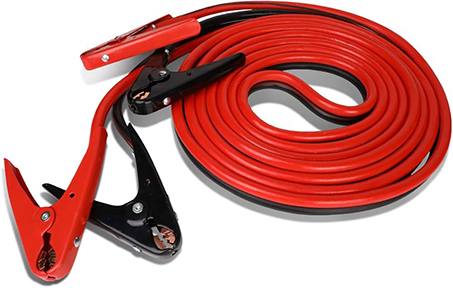
Heavy-Duty, Extra-lLng Booster Cables for Maximum Performance
In addition to our extensive range of booster packs, Oakville Automobile Boost takes pride in offering robust, extra-long booster cables designed to connect seamlessly to your vehicle's battery, regardless of the challenges posed by its location. Whether your car is parked in a cramped space, an underground garage, or any other difficult-to-access area, you can count on Oakville Automobile Boost to provide the right tools and expertise necessary for effective Automobile Boost and JumpStart services.
Our commitment to customer satisfaction drives us to ensure that you receive prompt and reliable assistance whenever you need it. We understand that vehicle breakdowns can happen at the most inconvenient times, which is why our team is equipped to handle a variety of situations with professionalism and efficiency. Our experienced technicians are trained to assess your vehicle's needs quickly and accurately, allowing us to deliver the most effective solution tailored to your specific circumstances.
At Oakville Automobile Boost, we believe that getting you back on the road should be a swift and hassle-free experience. Our mission is to minimize any disruptions to your day, allowing you to continue with your plans without unnecessary delays. With our high-quality equipment and dedicated service, you can trust that we will restore your vehicle's power and get you moving again in no time.
Whether you’re facing a dead battery in a busy parking lot or a tight spot in your garage, Oakville Automobile Boost is your go-to solution for reliable and efficient jump-start services. We are here to ensure that you can tackle your day with confidence, knowing that help is just a call away.
-30% Discount
Battery
Boost Service
437-388-9191
Boosting The Neighbourhoods Near Me
Alton Village
Bronte
Burlington
Clarkson
Clearview
College Park
Cooksville
Creditview
Erin Mills
Erindale
Etobicoke
Glen Abbey
Headon Forest
Iroquois Ridge North
Iroquois Ridge South
Kerr Village
Longmoor
Lorne Park
Malton
Meadowvale
Mineola
Mississauga
Mountainside
Oakville
Palermo
Palmer
Plains
Port Credit
River Oaks
Roseland
Shoreacres
Streetsville
Tansley
The Orchard
Uptown
West Oak Trails
Affordable Automobile Boost
437-388-9191
Battery Boosts Oakville
Car Jump Start Oakville
Quality Car Jumpstart Battery Boost in Oakville 437-388-9191 Above and Underground Car Jumpstart Battery Boost Service. 30% Discount!
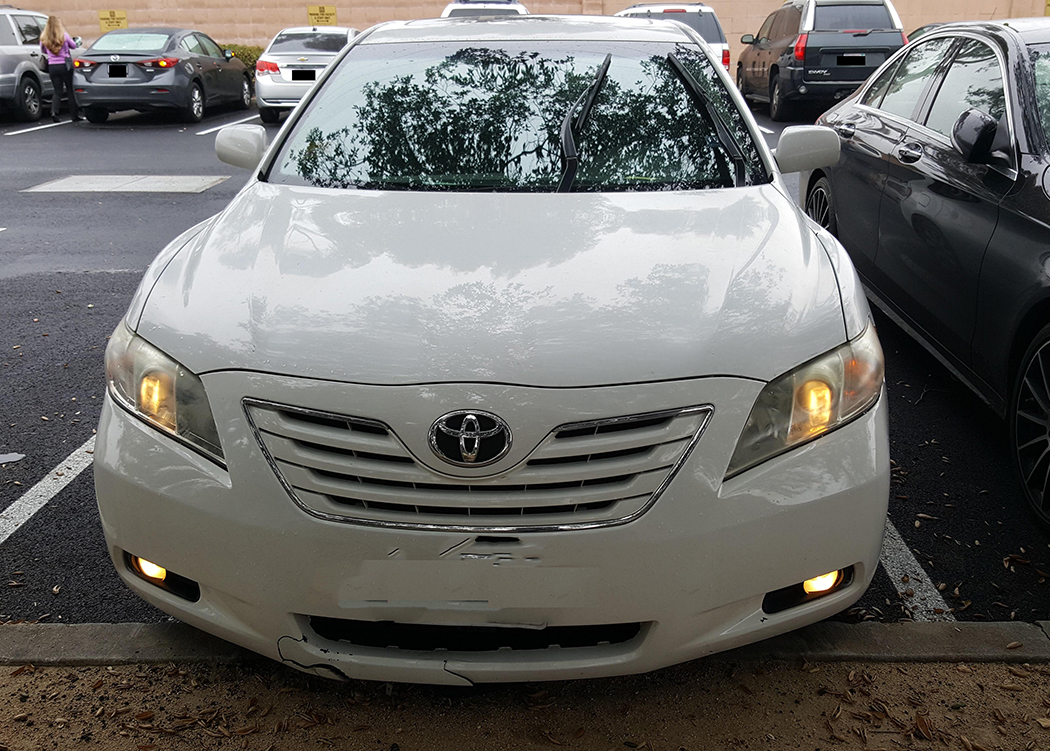
Have You Left Your Automobile Lights On?
Have you ever experienced the annoyance of unintentionally leaving your car lights on in Oakville?
If you've noticed that your car battery is starting to weaken, you might be worried about its dependability for your future travels. There's no reason to panic; we are here to help you tackle these common automotive challenges. Introducing our exceptional Automobile Boost and JumpStart Service, dedicated to providing reliable jump-start solutions for your vehicle. Our primary goal is to get you back on the road swiftly, easing the stress and hassle that come with a dead battery in Oakville.
If you need help, don’t hesitate to reach out to us at (437) 388-9191. Our expert team is ready to assist you in restoring your vehicle's performance. At Oakville Automobile Boost Service, we understand that car troubles can happen at any time. That’s why we are committed to delivering prompt and efficient service in Oakville, ensuring you can return to the road without delay.
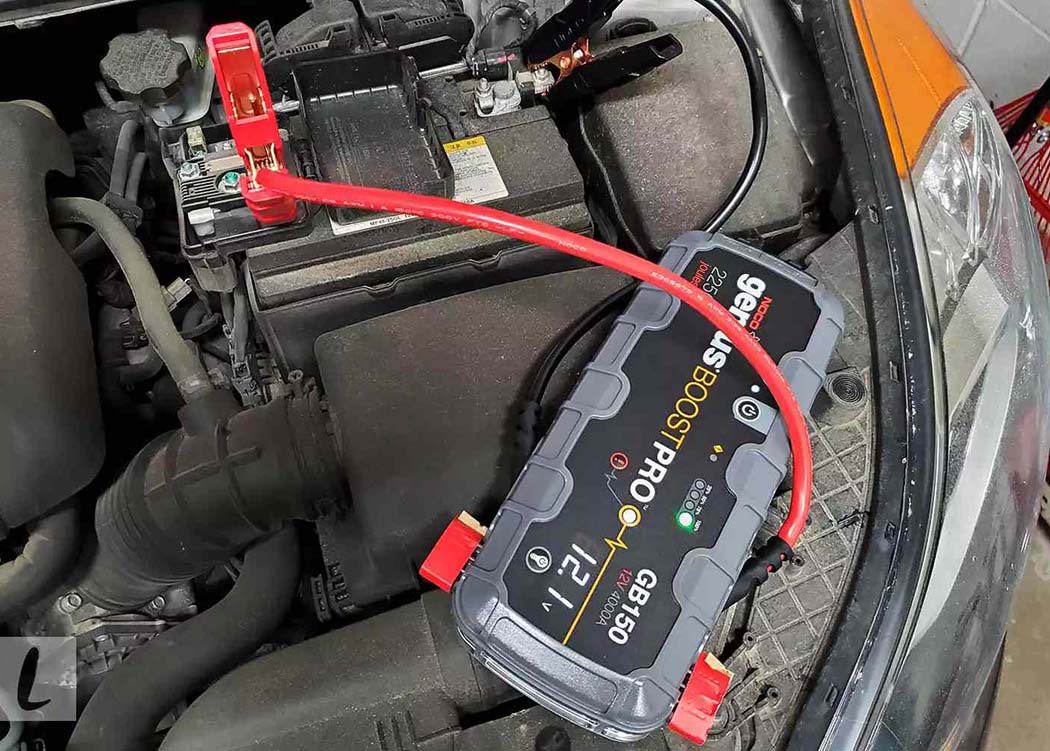
The Agony of a Dead Battery: A Driver's Predicament.
Oakville Automobile Boost Service is here to help you tackle the frustrating problem of a vehicle that refuses to start.
After a long, exhausting day, you finally reach your car only to discover that it won’t start due to a dead battery. This situation can be incredibly frustrating, especially when you have important commitments waiting for you. But don’t let this setback ruin your day. Reach out to Oakville Automobile Boost Service for dependable Jump Start and Car Boost Services in Oakville. Our experienced team is ready to provide a quick boost to get your battery back in action, so you can resume your journey without any hassle. While a short drive can sometimes recharge your battery, we understand that there are times when you need immediate assistance in Oakville. That’s where our dedicated team comes in. We are always prepared to deliver the essential jump-start you need, ensuring you can continue with your day without unnecessary delays. With our expertise and commitment to customer satisfaction, you can trust us to handle your jump-start needs with professionalism and care.
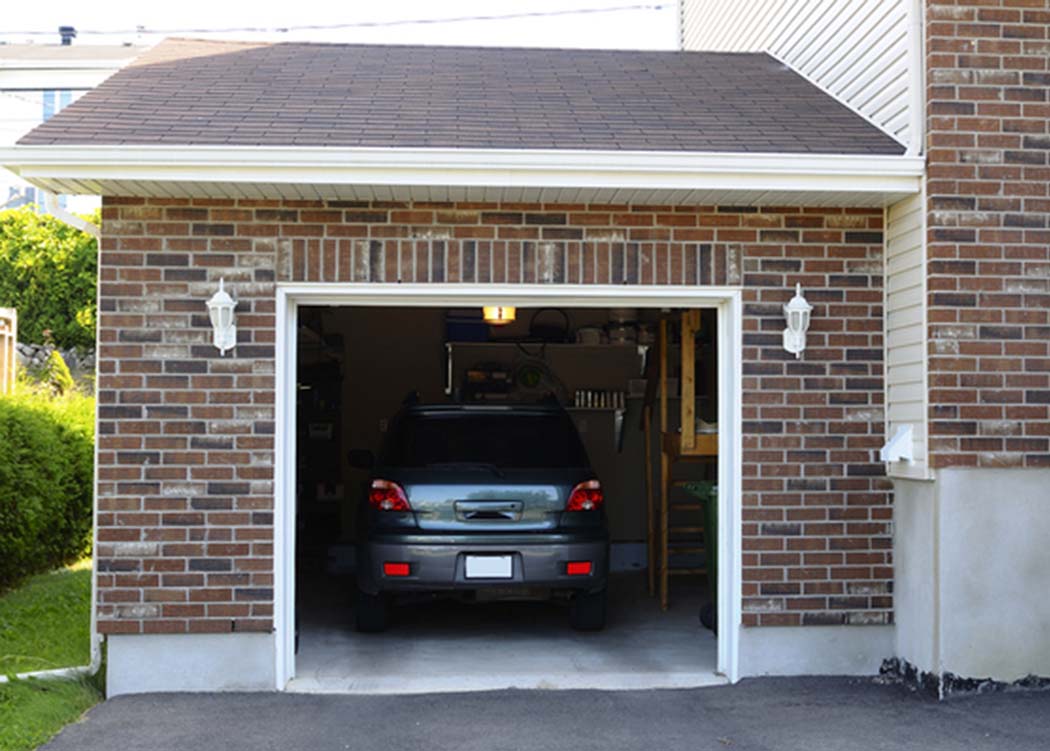
Is your automobile parked nose-in?
Oakville Automobile Boost Service offers easy solutions for jump-starting your vehicle.
When you find yourself in a tough spot in Oakville, with your vehicle parked in a tricky location and accessing the battery proving to be a challenge, you can take comfort in knowing that help is available. We understand the anxiety and irritation that can arise in such situations, particularly when you're eager to get back on the road. Our dedicated team is equipped with specialized booster packs designed specifically for complex Jump Start and Car Boost scenarios. These powerful yet compact devices allow us to navigate tight spaces and reach your battery when standard jumper cables fall short. No matter where your vehicle is located in Oakville, we are here to provide the assistance you need to get back on your journey.

Automobile Boost and JumpStart Service offers affordable solutions tailored to your requirements.
Oakville Automobile Boost and JumpStart Service delivers approachable and affordable help for your vehicle needs. We offer jump-start services at a competitive price, ensuring you get back on the road without breaking the bank.
Customers who choose prepaid services (E-Transfer) enjoy priority status, ensuring they receive prompt attention and quick driver assignments, reflecting our appreciation for their trust and loyalty. By opting for prepaid options, these customers are prioritized for efficient resource allocation and fast support, while those who do not choose prepaid may encounter longer wait times. This approach highlights our commitment to delivering exceptional service to prepaid clients, enhancing their experience and fostering loyalty through swift and effective assistance.
Boosting The Neighbourhoods Near Me
Alton Village
Bronte
Burlington
Clarkson
Clearview
College Park
Cooksville
Creditview
Erin Mills
Erindale
Etobicoke
Glen Abbey
Headon Forest
Iroquois Ridge North
Iroquois Ridge South
Kerr Village
Longmoor
Lorne Park
Malton
Meadowvale
Mineola
Mississauga
Mountainside
Oakville
Palermo
Palmer
Plains
Port Credit
River Oaks
Roseland
Shoreacres
Streetsville
Tansley
The Orchard
Uptown
West Oak Trails
Affordable Automobile Boost
437-388-9191
Underground Battery Boosts Oakville
Underground Car Jump Start Oakville
Quality Car Jumpstart Battery Boost in Oakville 437-388-9191 Underground Car Jumpstart Battery Boost Service. 30% Discount!
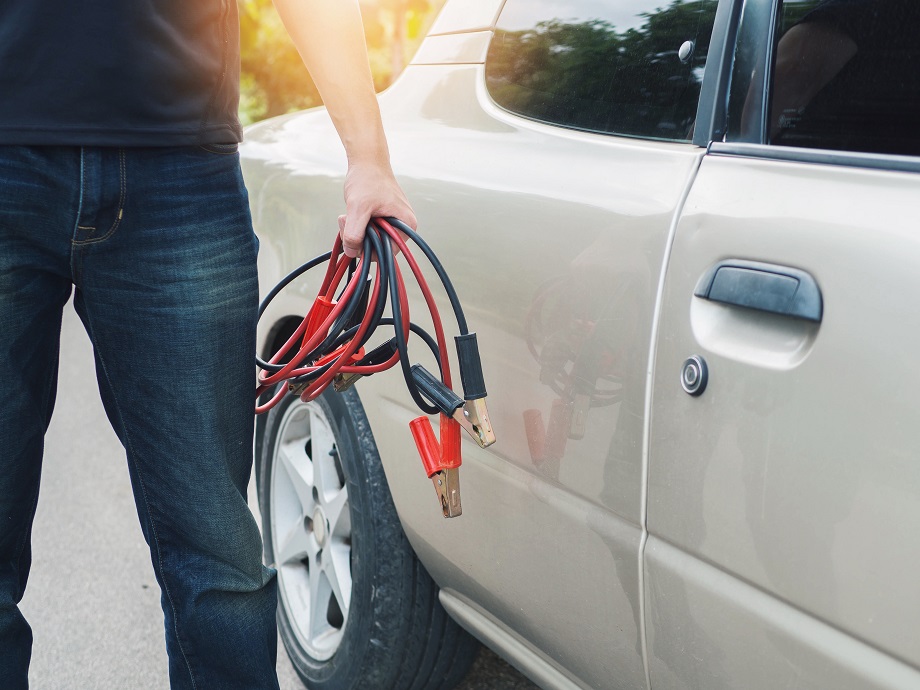
Surpassing the Constraints of Jumpstarter Cables
1. Oakville Automobile Boost is designed to reach your vehicle's battery even in the most confined and difficult spaces.
When you find yourself in Oakville with your vehicle in a tricky position that makes accessing the battery a challenge, you can count on us for assistance. We understand the anxiety and urgency that come with such situations, especially when you're eager to get back on the road. Our expert team is armed with specialized booster packs designed specifically for complex jump-start scenarios. These powerful yet compact packs allow us to navigate tight spaces and reach your battery when traditional jumper cables fall short. No matter where your vehicle is located in Oakville, we are prepared to deliver the crucial support you need to get it running again. Our cutting-edge booster packs utilize advanced lithium-ion technology, providing a quick and powerful surge to revive your battery in mere seconds. Safety is our top priority; our booster packs come with multiple safety features to prevent sparks and avoid incorrect connections, ensuring you can use our equipment with confidence, even if you're not a car expert. We also offer extended cables that make battery access easier in the most challenging situations throughout Oakville. Whether your vehicle is in a busy parking lot, an underground garage, or any other difficult spot, we have the right tools and expertise to help you effectively. Our mission is to get you back on the road swiftly, minimizing any disruptions to your day.

Automobile Boost and JumpStart Service offers affordable solutions tailored to your requirements.
Oakville Automobile Boost and JumpStart Service delivers approachable and affordable help for your vehicle needs. We offer jump-start services at a competitive price, ensuring you get back on the road without breaking the bank.
Customers who choose prepaid services (E-Transfer) enjoy priority status, ensuring they receive prompt attention and quick driver assignments, reflecting our appreciation for their trust and loyalty. By opting for prepaid options, these customers are prioritized for efficient resource allocation and fast support, while those who do not choose prepaid may encounter longer wait times. This approach highlights our commitment to delivering exceptional service to prepaid clients, enhancing their experience and fostering loyalty through swift and effective assistance.
Boosting The Neighbourhoods Near Me
Alton Village
Bronte
Burlington
Clarkson
Clearview
College Park
Cooksville
Creditview
Erin Mills
Erindale
Etobicoke
Glen Abbey
Headon Forest
Iroquois Ridge North
Iroquois Ridge South
Kerr Village
Longmoor
Lorne Park
Malton
Meadowvale
Mineola
Mississauga
Mountainside
Oakville
Palermo
Palmer
Plains
Port Credit
River Oaks
Roseland
Shoreacres
Streetsville
Tansley
The Orchard
Uptown
West Oak Trails
Affordable Automobile Boost
437-388-9191
Easy-To-Understand Guide on How to Boost Your Automobile

Locate the lever that releases the car hood
To open your vehicle's hood, begin by locating the hood latch lever, which is typically found within the car's cabin. This lever is usually positioned on the driver's side for easy access, and you can often find it either close to the floor near the door or beneath the dashboard, depending on the make and model of your vehicle. Once you have identified the lever, grasp it firmly and pull it towards you. You should feel a noticeable resistance as you pull, and you may hear a distinct click sound, indicating that the hood latch has been successfully released. This sound is an important cue, as it confirms that the latch mechanism is disengaged and the hood is now ready to be opened.
1. Release the secondary latch for the car hood.
To begin the process of opening your vehicle's hood, start by gently lifting the hood upwards until you encounter a slight resistance. This resistance indicates that you have reached the primary latch that secures the hood in place. At this point, it’s important to locate the secondary hood release mechanism, which is typically situated near the front of the vehicle, just behind the grille or at the center of the hood. The method for engaging the secondary release can differ depending on the make and model of your car. In some vehicles, you may need to push the latch to the side, while in others, you might need to slide it or pull it towards you. Take a moment to familiarize yourself with the specific design of your car's hood release system, as this will ensure that you can open the hood smoothly and without any frustration.
Position the support pole for the hood in its assigned spot.
After you have effectively activated the secondary hood release, you can carefully raise the hood even higher to gain access to the engine compartment. At this point, you may notice that your vehicle is equipped with hydraulic struts, which are designed to assist in lifting the hood and will hold it securely in place while you work. These struts are a convenient feature, as they allow you to open the hood with minimal effort and ensure that it remains elevated without any additional support. However, if your vehicle does not have hydraulic struts, you will likely need to use a hood support rod. This rod is typically located near the front of the engine compartment, often attached to the underside of the hood or stored in a designated holder. To use the hood support rod, simply remove it from its holder and insert it into the designated slot or hole on the underside of the hood. This will provide the necessary support to keep the hood open while you perform any maintenance or inspections. Regardless of whether your vehicle uses hydraulic struts or a support rod, it is crucial to ensure that the hood is firmly secured in the open position before you begin working underneath it. A hood that is not properly secured can unexpectedly close, posing a serious risk of injury. Always take a moment to double-check that the hood is stable and will not fall while you are engaged in your tasks. Your safety must come first, so be vigilant and cautious as you proceed with any work in the engine compartment.
1. Identify the terminals of the car battery.
At this point, it's essential to locate the battery and accurately identify which terminals are designated as positive and negative. This step is crucial for ensuring proper connections and preventing any potential damage or safety hazards. Typically, the positive terminal is easily recognizable, as it is often marked by a red cap or a red wire that is connected to it. This color coding is a standard practice in electrical systems to help users quickly identify the positive side. If you find that the red indicators are not immediately visible, don’t worry; there are other ways to determine the positive terminal. Take a close look at the battery itself for any markings. You may find a positive + (plus) sign that is either printed on the battery's casing or molded into its surface. This symbol is a universal indicator of the positive terminal and can help you confirm your findings. In addition to these visual cues, it’s also important to be aware of the negative terminal, which is usually marked with a black cap or wire and may have a - (minus) sign nearby. Understanding the distinction between these two terminals is vital, especially when connecting or disconnecting cables, as reversing the connections can lead to short circuits or damage to the electrical system.
Link up the Smart Car Battery Booster Pack.
To begin the process of jump-starting a vehicle using a booster pack, start by locating the booster pack and the battery of the vehicle that requires a jump. Carefully take the red clip of the booster pack and connect it to the positive terminal of the battery, which is usually marked with a plus sign (+) and often has a red cover. Make sure that the connection is firm and secure, as a loose connection can hinder the jump-starting process. Next, take the black clip of the booster pack and attach it to the negative terminal of the battery. The negative terminal is typically marked with a minus sign (−) and may have a black cover. Again, ensure that this connection is tight and secure to prevent any issues during the jump-start. Once both clips are properly connected, it is essential to turn on the booster pack. This step is crucial, as the booster pack needs to be powered on to provide the necessary charge to the vehicle's battery. Before proceeding, double-check that all connections are tight and secure, as this will help ensure optimal performance and safety during the jump-starting process.
Turning the ignition key or pressing the start button
Once you've ensured that everything is set up correctly, you can go ahead and start the vehicle that needs a jump. This process typically involves turning the ignition key or pressing the start button, depending on the vehicle's design. If the engine starts without any issues, it's a good sign that the jump was successful. Allow the vehicle to idle for a few minutes; this is crucial as it gives the battery a chance to recharge. During this time, you may notice the engine running smoothly, and you might even hear the sound of the alternator working to replenish the battery's charge. While the vehicle is idling, it's advisable to keep an eye on the dashboard for any warning lights that may indicate a problem. If everything appears normal, you can feel confident that the battery is receiving the necessary charge. After a few minutes, you can prepare to disconnect the booster pack. When it's time to disconnect, always take off the black clip first. This clip is connected to the negative terminal of the dead battery, and removing it first helps to minimize the risk of sparks. After the black clip is removed, proceed to take off the red clip, which is connected to the positive terminal of the battery. This order of disconnection is important because it reduces the chances of creating a short circuit, which can be dangerous and potentially damaging to both vehicles. Once both clips are safely removed, ensure that the booster pack is stored away properly and that the cables are not left lying around where they could cause a trip hazard. Finally, it’s a good idea to let the revived vehicle run for a while longer, ideally taking it for a short drive, to ensure that the battery continues to charge effectively. This will help to restore the battery's health and prevent future issues.
Seek help from Oakville Automobile Boost.
If you find yourself continuing to face challenges in improving your battery performance or if you feel that you lack the necessary technical knowledge to tackle the issue on your own, we encourage you to reach out to us without hesitation. You can contact us at 437-388-9191. Our dedicated and experienced team is here to assist you with all your battery needs, ensuring that you receive the support and guidance required to achieve optimal battery performance. Whether you need advice, troubleshooting, or hands-on assistance, we are committed to helping you with your battery boost in Oakville. Don’t let battery issues hold you back—get in touch with us today!
1. The Risks of Incorrectly Jump-Starting a Vehicle.
Starting a battery without proper knowledge can be detrimental to your vehicle for several reasons. First and foremost, the process of jump-starting a car involves connecting jumper cables to the battery terminals, which requires a clear understanding of the correct procedure. If the cables are connected incorrectly—such as attaching the positive cable to the negative terminal or vice versa—it can create electrical surges. These surges can overwhelm the vehicle's electrical system, potentially damaging sensitive components like the alternator, onboard computers, and various sensors. Moreover, the risk of short-circuiting increases significantly when jumper cables are mishandled. A short circuit can lead to immediate and severe damage, resulting in costly repairs that could have been easily avoided with a little knowledge and caution. Additionally, incorrect connections can also lead to battery explosions in extreme cases, posing a safety hazard to anyone nearby. Furthermore, even if the vehicle starts, the repercussions of improper jump-starting can manifest later on. You might experience erratic behavior from the vehicle's electrical systems, such as flickering lights, malfunctioning displays, or issues with the ignition system. These problems can be frustrating and time-consuming to diagnose and fix, often requiring the expertise of a professional mechanic. In summary, taking the time to learn the correct method for jump-starting a vehicle is crucial. It not only protects your car from potential damage but also ensures your safety and the safety of those around you. Investing in a basic understanding of automotive electrical systems can save you from the headaches and expenses associated with improper battery management.
Understanding the Significance of Carefulness When Boosting Vehicle Batteries.
Exercising caution is of utmost importance when it comes to using an auxiliary battery to boost your vehicle. It is essential to understand that neglecting to follow the established guidelines and safety protocols during this process can lead to severe consequences, including serious injuries to yourself or others nearby. The risks associated with improper handling of batteries, such as electrical shocks, explosions, or chemical leaks, should not be underestimated. Furthermore, it is important to note that Oakville Automobile Boost cannot be held liable for any personal injuries or property damage that may arise as a result of improper use of an auxiliary battery. This includes any accidents or mishaps that occur due to a lack of adherence to safety measures. Therefore, it is imperative to take the necessary precautions, familiarize yourself with the correct procedures, and ensure that you are fully equipped with the knowledge needed to safely boost your vehicle. By doing so, you can help protect yourself and others from potential harm while also safeguarding your property from damage. Always prioritize safety and responsibility when dealing with automotive battery systems.
Boosting The Neighbourhoods Near Me
Alton Village
Bronte
Burlington
Clarkson
Clearview
College Park
Cooksville
Creditview
Erin Mills
Erindale
Etobicoke
Glen Abbey
Headon Forest
Iroquois Ridge North
Iroquois Ridge South
Kerr Village
Longmoor
Lorne Park
Malton
Meadowvale
Mineola
Mississauga
Mountainside
Oakville
Palermo
Palmer
Plains
Port Credit
River Oaks
Roseland
Shoreacres
Streetsville
Tansley
The Orchard
Uptown
West Oak Trails
Affordable Automobile Boost
437-388-9191
1. Prior to initiating the jump-start process.
Adhering to these guidelines with precision is essential for safeguarding your well-being and ensuring that the vehicles operate effectively.
Ensure a safe distance
To start the jump-starting process safely, it is crucial to position the two vehicles at a safe distance from one another. This gap is not merely a suggestion; it is an essential precaution designed to prevent any accidental contact that could lead to damage or injury during the procedure. When arranging the cars, aim to create a setup where both vehicles are easily accessible, particularly their batteries, which will be the focal point of the jump-starting process. The jumper cables need to reach comfortably from one battery to the other, so ensure that the vehicles are aligned in such a way that the cables can connect without any strain or stretching. However, while accessibility is important, it is equally vital to maintain a safe distance between the two cars. This distance should be sufficient to eliminate the risk of any unintended collisions or disruptions that could occur if one vehicle were to roll or shift unexpectedly. A separation of at least a few feet is advisable, as this not only guarantees safety but also provides ample space for maneuvering around the vehicles. In addition to the physical distance, consider the surrounding environment. Ensure that the area is clear of obstacles, debris, or other vehicles that could pose a risk during the jump-starting process. By taking these precautions and positioning the vehicles thoughtfully, you can create a safe and effective environment for jump-starting a car, minimizing the potential for accidents and ensuring a smoother operation.
1. Examine the vehicle's dead battery
Before proceeding with any actions regarding a dead battery, it is crucial to conduct a comprehensive inspection of the battery itself. Start by carefully examining the exterior of the battery for any signs of freezing. Look for characteristics that suggest the battery may be frozen, such as a rigid, solid appearance or the presence of ice crystals forming on or around the battery casing. If you observe any indications that the battery appears to be frozen, it is imperative to avoid attempting to jump-start it. Doing so could lead to a dangerous situation, including the risk of an explosion, which can cause serious injury or damage. In addition to checking for signs of freezing, take the time to inspect the surface of the battery for any abnormal features. Pay particular attention to any bubbling or rippling on the battery's casing, as these can be indicators of significant underlying issues. Such symptoms may suggest that the battery is experiencing internal damage or chemical reactions that could compromise its functionality and safety. Moreover, it is important to recognize that a battery that is unable to retain a charge can place additional strain on the vehicle's alternator. The alternator is responsible for recharging the battery while the engine is running, and if it is forced to work harder due to a failing battery, it may lead to premature wear and tear. This added stress can result in early deterioration of the alternator, potentially leading to costly repairs or replacements down the line. Therefore, taking the time to thoroughly inspect the battery before taking any further action is not only a matter of safety but also a proactive step in maintaining the overall health of your vehicle's electrical system.
1. Stay Informed About Hydrogen Gas
Automobile batteries, particularly the widely used lead-acid types, are critical components in the functioning of vehicles, providing the necessary power to start engines and operate electrical systems. However, one of the significant risks associated with these batteries is their potential to emit hydrogen gas during the charging process or if they are subjected to overcharging. Hydrogen gas is a byproduct of the electrochemical reactions that occur within lead-acid batteries, especially when the battery is charged at a high voltage or for an extended period. This gas is not only highly flammable but also poses a serious risk of explosion if it accumulates in an enclosed space and comes into contact with sparks, flames, or other ignition sources. The flammability of hydrogen means that even a small amount of gas can lead to dangerous situations, including fires or explosions that can cause significant damage to property and pose severe risks to personal safety. Given these hazards, it is crucial to implement and adhere to stringent safety protocols when handling and charging automobile batteries. These protocols may include ensuring proper ventilation in areas where batteries are charged to prevent the accumulation of hydrogen gas, using appropriate charging equipment that prevents overcharging, and regularly inspecting batteries for signs of damage or wear that could increase the risk of gas emission. Additionally, it is important to educate individuals who work with or around batteries about the potential dangers and the necessary precautions to take, such as avoiding open flames and sparks in the vicinity of charging batteries. By taking these proactive measures and fostering a culture of safety, the risks associated with hydrogen gas emissions from automobile batteries can be significantly mitigated, ensuring a safer environment for both individuals and property.
Exercise Caution When Dealing with Car Battery Leaks
Leaks from batteries, while not a common occurrence, can happen under certain circumstances. It is crucial to be vigilant and prepared for such events. If you notice any signs of leakage, it is imperative to take immediate action to safeguard yourself. The battery electrolyte can be highly corrosive and poses significant risks to your health, particularly to your eyes, skin, and clothing. To protect yourself, ensure that you are wearing appropriate personal protective equipment, such as safety goggles, gloves, and protective clothing, to minimize the risk of exposure. If any electrolyte comes into contact with your skin or eyes, it is vital to act quickly. Rinse the affected area thoroughly with copious amounts of water for at least 15 minutes to dilute and wash away the harmful substance. In the case of skin contact, remove any contaminated clothing to prevent further exposure. If the electrolyte has come into contact with your eyes, do not rub them; instead, flush them with water while keeping your eyes open to ensure that the water can wash out any harmful chemicals. After taking these initial steps, it is crucial to seek medical assistance immediately, even if the exposure seems minor. Chemical burns can have delayed effects, and a healthcare professional will be able to assess the situation and provide the necessary treatment. Remember, safety should always be your top priority when dealing with potentially hazardous materials.
Wear Protective Gear
To enhance your safety when dealing with an automobile battery, it is highly advisable to take several precautionary measures. First and foremost, donning a pair of sturdy work gloves is essential. These gloves not only provide a barrier between your skin and the battery, which can contain corrosive materials, but they also help prevent accidental electrical shocks. In addition to gloves, it is crucial to remove any jewelry, such as rings, bracelets, or watches, before beginning any work on the battery. Metal items can conduct electricity, and in the event of a short circuit, they could pose a serious risk of electric shock or even cause burns. Furthermore, wearing safety goggles is strongly recommended to protect your eyes from potential hazards. When working with batteries, there is a risk of splashes from battery acid or the possibility of flying debris if a battery is mishandled or if a tool slips. Safety goggles will shield your eyes from these dangers, ensuring that you can work with greater confidence and security. In addition to these personal protective measures, it is also wise to work in a well-ventilated area. Batteries can emit harmful gases, especially when being charged or if they are damaged. Ensuring proper ventilation will help dissipate any potentially harmful fumes, reducing the risk of inhalation. Lastly, it is important to familiarize yourself with the specific battery you are working with, including its terminals and any safety features it may have. Understanding the layout and function of the battery can help you avoid mistakes that could lead to accidents. By taking these precautions—wearing gloves, removing jewelry, using safety goggles, ensuring ventilation, and understanding the battery—you can significantly enhance your safety while working with automobile batteries.
Turn Off Electrical Devices
Before beginning the jump-start procedure, it is essential to ensure that all electrical devices in both vehicles are turned off. This includes not only the obvious components like the headlights and interior lights but also systems such as the heating and air conditioning. Additionally, any other electronic accessories, such as radios, GPS devices, and charging ports, should be disabled. Taking this precaution is vital because it helps to protect the vehicles' electrical systems from potential damage caused by electrical surges. When jump-starting a vehicle, there is a risk of a sudden influx of power that can occur when the connection is made. If electrical devices are left on, they may draw power during this surge, which could lead to overheating, short circuits, or even permanent damage to sensitive electronic components. By turning off all electrical devices, you not only minimize the risk of damage but also ensure a smoother and more efficient jump-start process. This simple step can save you from costly repairs and ensure that both vehicles are in optimal condition for the jump-start. Therefore, it is a critical part of the preparation process that should not be overlooked.
Engage the parking brake on the vehicle
Ensuring that the parking brakes of both vehicles are securely engaged before you start connecting the jumper cables is a wise precaution that should never be overlooked. This simple yet crucial step not only enhances your safety but also allows you to concentrate fully on the task at hand without the distraction of possible vehicle movement. When you engage the parking brakes, you create a stable environment that minimizes the risk of either vehicle rolling unexpectedly, which could lead to accidents or injuries. Prioritizing safety is essential when dealing with cars, as the process of jump-starting a vehicle involves handling electrical components and potentially hazardous materials. Taking a moment to properly secure both vehicles can significantly contribute to a seamless and secure jump-starting process. By ensuring that the parking brakes are engaged, you can work with greater confidence, knowing that the vehicles are stationary and that you can focus on connecting the jumper cables correctly. Moreover, this precautionary measure is particularly important in situations where the terrain may be uneven or sloped. In such cases, the risk of a vehicle rolling away increases, making it even more critical to engage the parking brakes. Additionally, securing the vehicles helps to prevent any accidental contact between them, which could cause damage to the cars or create further complications during the jump-starting process. In summary, taking the time to engage the parking brakes of both vehicles is a fundamental step that enhances safety and allows for a more efficient and stress-free jump-starting experience. By making this a priority, you not only protect yourself and others around you but also ensure that the task is completed smoothly and effectively. Always remember that a few moments spent on safety can save you from potential hazards and lead to a successful outcome.
Check Transmission Settings
When dealing with vehicles that have manual transmissions, it is essential to take specific precautions before connecting the battery. One of the most important steps is to ensure that the gear lever is placed in the neutral position. This is crucial because if the vehicle is in gear when the battery is connected, it could lead to unintended movement, which poses a significant safety risk. To further ensure that the vehicle remains stationary, it is advisable to fully press the clutch pedal down and shift the gear stick between first and second gears. This action not only confirms that the transmission is disengaged but also helps to prevent any potential mishaps during the jump-starting process. On the other hand, for vehicles equipped with automatic transmissions, it is equally important to take the necessary precautions to secure the vehicle before connecting the battery. The first step is to verify that the vehicle is in the park (P) position. This is vital as it locks the transmission and prevents the vehicle from rolling away. To confirm that the gear selector is indeed in the 'P' position, you can check the dashboard gear indicator, which should clearly display the current gear selection. In addition to ensuring that the vehicle is in park, it is highly advisable to engage the parking brake. This extra measure of safety is particularly important if you are parked on an incline or slope, as it provides an additional layer of security against any unintended movement. Engaging the parking brake helps to keep the vehicle stationary, further reducing the risk of accidents while you prepare to jump-start the battery. By following these steps, you can ensure a safer and more effective jump-starting process for both manual and automatic vehicles.
Understanding the Significance of Carefulness When Boosting Vehicle Batteries
It is crucial to recognize that Oakville Automobile Boost disclaims any liability for personal injuries or property damage that may occur during the jump-start procedure. By opting to proceed with the jump-start, you are acknowledging and accepting full responsibility for your actions and decisions. This acceptance includes confirming that you have taken all necessary precautions to ensure your safety and the safety of those around you. It is essential to be aware of the potential risks involved in jump-starting a vehicle, as improper handling of the equipment or failure to follow safety protocols can lead to serious accidents or damage. If you have any uncertainties regarding the jump-start process, or if you feel uncomfortable or unqualified to perform it, we strongly advise you to seek the assistance of Oakville Automobile Boost. Engaging a trained technician can help mitigate risks and ensure that the procedure is carried out safely and effectively. Your safety and the safety of others should always be the top priority.
Boosting The Neighbourhoods Near Me
Alton Village
Bronte
Burlington
Clarkson
Clearview
College Park
Cooksville
Creditview
Erin Mills
Erindale
Etobicoke
Glen Abbey
Headon Forest
Iroquois Ridge North
Iroquois Ridge South
Kerr Village
Longmoor
Lorne Park
Malton
Meadowvale
Mineola
Mississauga
Mountainside
Oakville
Palermo
Palmer
Plains
Port Credit
River Oaks
Roseland
Shoreacres
Streetsville
Tansley
The Orchard
Uptown
West Oak Trails
Affordable Automobile Boost
437-388-9191
When jump-starting a car battery,
be sure to adhere to all the suggested guidelines
When it comes to jump-starting a battery, adhering to the guidelines is crucial for ensuring both safety and effectiveness. Although the process of connecting the battery of a dead vehicle to that of a functioning one may appear straightforward, it is, in fact, more complex than it seems at first glance. Many modern vehicles are equipped with advanced electrical systems that include a fuse on the positive terminal of the battery. This fuse serves as a protective measure, designed to safeguard the vehicle's electrical system against potential power surges that can occur during the jump-starting process. If the jumper cables are connected incorrectly—such as reversing the polarity by attaching the positive cable to the negative terminal and vice versa—you risk blowing this fuse. The consequences of such a mistake can be significant, leading to damage in various electronic components of the vehicle. The potential for costly repairs is a serious concern. For instance, if the onboard computer, which oversees essential functions of the vehicle, is damaged, the cost of replacement can easily exceed $1,000. Similarly, if the central touchscreen or other critical electronic systems malfunction due to improper jump-starting procedures, the repair bills can add up quickly. To avoid these pitfalls, it is essential to meticulously follow our detailed instructions and take your time with each step of the jump-starting process. This careful approach not only minimizes the risk of damaging your vehicle's electrical system but also ensures that you can successfully jump-start your battery without encountering any problems. By being diligent and attentive, you can navigate this seemingly simple task with confidence, ultimately saving yourself from the headache and expense of repairs.
Taking Care of Your Automobile Battery After a Jump Start
A car battery is considered fully depleted when the engine fails to start, indicating that it no longer has enough charge to power the vehicle's starter motor. In such situations, many individuals mistakenly believe that they should immediately disconnect the jumper cables after successfully jump-starting the dead battery. However, this common misconception overlooks an important aspect of the jump-starting process. In reality, it is more advantageous to keep the jumper cables connected to both the functioning vehicle and the depleted battery for a minimum of five minutes after the initial jump start. This extended connection time allows the dead battery to recharge more effectively, as the functioning vehicle's alternator can provide a steady flow of electricity to the depleted battery. By allowing this additional time for charging, the chances of the dead battery being able to hold a charge and start the vehicle again on its own are significantly improved. Moreover, keeping the jumper cables connected for a few extra minutes helps to minimize the risk of a power surge when the cables are eventually detached. A sudden disconnection can lead to a spike in voltage, which may potentially damage the electrical systems of either vehicle. By allowing the batteries to stabilize while still connected, the risk of such surges is greatly reduced. Once the vehicle is operational again, it is advisable to set the heating and defrosting systems to their maximum settings for a few minutes. This practice serves a dual purpose: first, it helps to draw additional power from the alternator, which can assist in recharging the battery further; second, it can help to dissipate any residual electrical surges that may occur when the jumper cables are finally removed. By following these steps, drivers can ensure a smoother and safer transition back to normal vehicle operation, while also extending the life of their car battery and electrical systems.
Discover these valuable strategies to extend the lifespan of your car battery
Caring for your vehicle's battery is crucial, as it serves as the lifeblood of your car. A failing battery can lead to a cascade of issues, making it imperative to provide the necessary attention to prevent unexpected failures, particularly when you rely on your vehicle the most.
Reducing stress on your battery during frigid temperatures is essential. When the mercury dips to -15 degrees or lower, utilizing a block heater becomes critical. This device warms your engine oil and fluids, facilitating an easier start for your battery. Cold weather can significantly drain your battery's power, potentially leading to premature replacement.
It's also important to monitor for corrosion. Batteries contain sulfuric acid, and the constant heating and cooling during operation can release hydrogen gas. This gas can combine with dirt and debris on your battery, leading to corrosion. If you notice any signs of corrosion, addressing it promptly is vital.
Understanding your battery's age is another key factor. While you don't need to throw a party for your battery, it's beneficial to remember that the average lifespan is about 3-5 years in Ontario's climate. Being aware of its age allows you to plan for a replacement before it fails.
Lastly, if your battery seems to be struggling, it might just need a jumpstart to revive it. You can reach out to a friend or neighbor for assistance, or you can contact the Oakville Automobile Boost and JumpStart Assistance team for help.
Is your battery giving you trouble?
Look no further than Oakville Automobile Boost Assistance for a reliable solution.
If you ever find yourself grappling with a dead or malfunctioning vehicle battery, it is essential to seek assistance from Oakville Automobile Boost without delay. A faulty battery can lead to a myriad of complications, ranging from inconvenient delays to more serious mechanical issues that can affect the overall performance of your vehicle. Unfortunately, many of the damages caused by electrical surges or improper handling of the battery often fall outside the scope of warranty coverage, leaving you responsible for the costs of repairs. Attempting to troubleshoot or repair the battery issue on your own can be a daunting task. Not only can it be challenging to accurately diagnose the problem, but your efforts may inadvertently lead to additional expenses or further complications. For instance, you might accidentally damage other components of your vehicle's electrical system, which could result in costly repairs that far exceed the initial problem. Given these potential pitfalls, the most prudent course of action when your battery fails is to reach out to our dedicated team at Oakville Automobile Boost. Our skilled technicians are well-versed in handling a wide range of battery-related issues and are committed to providing you with swift and professional support. We understand the urgency of getting you back on the road, and we prioritize efficiency without compromising on the quality of our service. When you contact Oakville Automobile Boost, you can expect a prompt response and a thorough assessment of your vehicle's battery situation. Our team will arrive equipped with the necessary tools and expertise to diagnose the problem accurately and implement the appropriate solution. Whether it involves a simple jump-start, a battery replacement, or addressing underlying electrical issues, we are here to ensure that your vehicle is restored to optimal working condition as quickly as possible. In summary, don’t let a dead or malfunctioning battery disrupt your day. Trust the professionals at Oakville Automobile Boost to provide the reliable assistance you need. With our commitment to excellence and customer satisfaction, you can rest assured that your vehicle is in capable hands. Reach out to us today, and let us help you get back on the road with confidence.
Taking on the challenge of resolving the battery issue on your own can be a rewarding experience, offering a sense of accomplishment and a deeper understanding of your vehicle. However, it is crucial to adhere to the guidelines outlined in your vehicle owner's manual. This manual is specifically designed to provide you with the necessary information tailored to your make and model, ensuring that you follow the correct procedures for battery maintenance and replacement. By carefully following these instructions, you can avoid common pitfalls that many vehicle owners encounter when dealing with battery issues. For instance, improper handling of battery terminals, using the wrong type of battery, or neglecting safety precautions can lead to further complications or even personal injury. Therefore, taking the time to familiarize yourself with the specific guidelines for your vehicle will not only enhance your chances of success but also help you manage the situation safely and efficiently. In addition to following the manual, it’s wise to equip yourself with the right tools and safety gear before you begin. This preparation can include wearing gloves and safety goggles, ensuring you have a multimeter to check battery voltage, and having the appropriate wrenches or screwdrivers on hand. Such precautions will further safeguard you against potential hazards. However, if you find yourself in a situation where the problem is more complex than you initially anticipated, or if you encounter any uncertainties during the process, it’s important to recognize when to seek professional assistance. Our team at Oakville Automobile Boost is always ready to assist you. With our expertise and experience, we can help diagnose the issue accurately and provide the necessary solutions to get your vehicle back on the road safely. Remember, there’s no shame in asking for help when it comes to your vehicle’s health; sometimes, collaboration with professionals can save you time, effort, and potential headaches in the long run.
Boosting The Neighbourhoods Near Me
Alton Village
Bronte
Burlington
Clarkson
Clearview
College Park
Cooksville
Creditview
Erin Mills
Erindale
Etobicoke
Glen Abbey
Headon Forest
Iroquois Ridge North
Iroquois Ridge South
Kerr Village
Longmoor
Lorne Park
Malton
Meadowvale
Mineola
Mississauga
Mountainside
Oakville
Palermo
Palmer
Plains
Port Credit
River Oaks
Roseland
Shoreacres
Streetsville
Tansley
The Orchard
Uptown
West Oak Trails
Affordable Automobile Boost
437-388-9191
Pricing

Take advantage of a 30% discount
Service
Prepaid 30% Discount
Tax
Total
$65.00
-$19.50
$5.92
$51.42
Prepaid services (E-Transfer) are prioritized, ensuring immediate attention and prompt driver assignment for prepaid customers, rewarding their trust and loyalty. By choosing prepaid, customers move to the front of the queue for efficient resource allocation and quick assistance, while non-prepaid customers may experience longer wait times. This approach highlights our commitment to exceptional service for prepaid clients, enhancing their experience and fostering loyalty through streamlined, swift assistance.
Oakville Automobile Boost
437-388-9191
Oakville
Useful Links Near Me
Here are some links we think you might find helpful.
